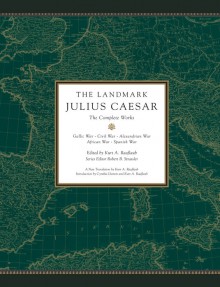
“The fault, dear Brutus, is not in our stars, but in ourselves.”
Wow. Being a history major and just all around history nerd I know a lot of Julius Caesar and what caused everyone and their mother to turn against him which led to his assassination by some accounts believe is at least 60 men. I always read that in history books and wondered at the men who decided to go forth with this and how did the conspirators think things would go for them afterwards. Shakespeare takes this event and writes this play showcasing many of the names most of us are familiar with from history class, we have Julius Caesar, Octavius Caesar (who would become Emperor Augustus, the first Roman Emperor), Marc Antony, and dumb Brutus.
The setup of the play is really those around Brutus trying their best to turn him against Caesar who up until that moment hadn't done one thing (in the play mind you) to have everyone turn against him and have so many people out for his blood. Reading how Brutus slowly but surely gets turned against Caesar was sad. Especially because part of me believes that he didn't really believe in what he was doing, but was doing it because everyone else was down for it.
In the end Caesar is assassinated, and throws a really girl line of shade at Brutus and then things fall apart. Which if I had been part of this little group I would have pointed out, of course this was going to end badly for all of you.
I love the dialogue in this play. The best part of the play is the speech that Brutus gives trying to explain why he and others did what he did and Marc Antony's response to it.
"Be patient till the last.
Romans, countrymen, and lovers! hear me for my
cause, and be silent, that you may hear: believe me
for mine honour, and have respect to mine honour, that
you may believe: censure me in your wisdom, and
awake your senses, that you may the better judge.
If there be any in this assembly, any dear friend of
Caesar's, to him I say, that Brutus' love to Caesar
was no less than his. If then that friend demand
why Brutus rose against Caesar, this is my answer:
--Not that I loved Caesar less, but that I loved
Rome more. Had you rather Caesar were living and
die all slaves, than that Caesar were dead, to live
all free men? As Caesar loved me, I weep for him;
as he was fortunate, I rejoice at it; as he was
valiant, I honour him: but, as he was ambitious, I
slew him. There is tears for his love; joy for his
fortune; honour for his valour; and death for his
ambition. Who is here so base that would be a
bondman? If any, speak; for him have I offended.
Who is here so rude that would not be a Roman? If
any, speak; for him have I offended. Who is here so
vile that will not love his country? If any, speak;
for him have I offended. I pause for a reply.
Marc Antony's speech:
“Friends, Romans, countrymen, lend me your ears;
I come to bury Caesar, not to praise him;
The evil that men do lives after them,
The good is oft interred with their bones,
So let it be with Caesar ... The noble Brutus
Hath told you Caesar was ambitious:
If it were so, it was a grievous fault,
And grievously hath Caesar answered it ...
Here, under leave of Brutus and the rest,
(For Brutus is an honourable man;
So are they all; all honourable men)
Come I to speak in Caesar's funeral ...
He was my friend, faithful and just to me:
But Brutus says he was ambitious;
And Brutus is an honourable man….
He hath brought many captives home to Rome,
Whose ransoms did the general coffers fill:
Did this in Caesar seem ambitious?
When that the poor have cried, Caesar hath wept:
Ambition should be made of sterner stuff:
Yet Brutus says he was ambitious;
And Brutus is an honourable man.
You all did see that on the Lupercal
I thrice presented him a kingly crown,
Which he did thrice refuse: was this ambition?
Yet Brutus says he was ambitious;
And, sure, he is an honourable man.
I speak not to disprove what Brutus spoke,
But here I am to speak what I do know.
You all did love him once, not without cause:
What cause withholds you then to mourn for him?
O judgement! thou art fled to brutish beasts,
And men have lost their reason…. Bear with me;
My heart is in the coffin there with Caesar,
And I must pause till it come back to me.”
Yeah Brutus, you done messed up. Antony's little speech was enough to get people to say hmmm.
The flow of the play is very good. And as I have said for all of Shakepeare's plays, the setting of his plays does not really come into play so to speak while you are reading the play. For most of these plays I would say watching them on stage or in a movie would be the best part in order to see how people are dressed, carry themselves, interact with each other and their surroundings.
The play comes to an end with the ghost of Caesar haunting Brutus with Brutus and Cassius deciding they will challenge Marc Antony and Octavius Casear in battle. Of course they lose to Marc Antony and in the end Brutus is the only one left that is praised by them for doing what he did for Rome and not because he was jealous of Caesar like the others were.


 Log in with Facebook
Log in with Facebook 







